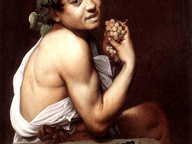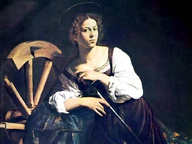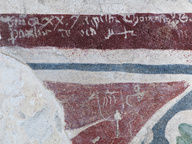18°48’05”N 72°23’01”W
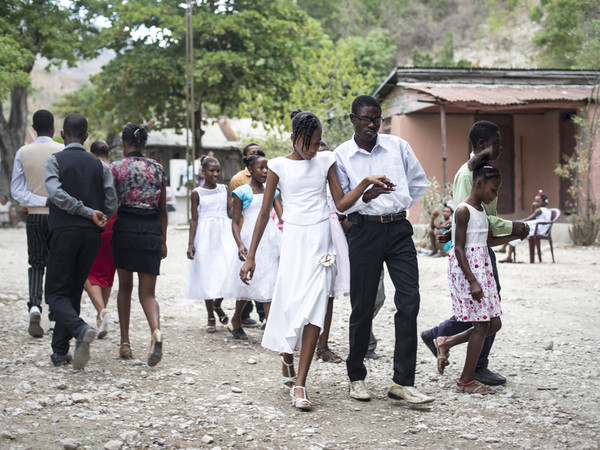
C.T. Jasper, Joanna Malinowska, Halka/Haiti. 18°48’05”N 72°23’01”W, 2015. Dancers from Cazale during the performance. Photo by Bartosz Górka. Courtesy of the artists and Zachęta – National Gallery of Art.
From 09 Maggio 2015 to 22 Novembre 2015
Venice
Place: Biennale Giardini / Pav. Poland
Address: Giardini della Biennale
Responsibles: Magdalena Moskalewicz, Joanna Waśko
Organizers:
- Hanna Wróblewska
Do the nineteenth century artistic forms still have the power to represent national identity? Is opera today just a cultural anachronism, a sublimated form of leisure, a medium which, as Slavoj Žižek asserts, has already died twice over, and it would be naïve to believe in its radical potential?
There are the questions that the artists Joanna Malinowska and C.T. Jasper, along with curator Magdalena Moskalewicz, have asked themselves as they decided to travel to Haiti in order to show Stanisław Moniuszko’s opera Halkato the descendants of the Polish soldiers from Napoleon’s legions. Sent by Napoleon to San Domingo in the years 1802 and 1803 in order to fight the rebellion of the black slaves, the Poles – who joined the legions to fight for independence of their own occupied homeland – decided to help the insurgents. Their shared endeavours led to the creation of an independent Haiti. Forty-five years after the Haitian uprising, Halka was performed for the first time in Vilnius. The opera’s Polish-language libretto together with strong folk themes expressed the composer’s patriotic gesture in support of his still-occupied motherland.
The authors of the project are interested in what can happen when a community that identifies with Poland on a very general and symbolic level is confronted with a product of the culture that drew their forefathers to Haiti. Moreover, can opera – historically one of the elements of cultural domination exercised by the European empires – play the role of a mediating platform?
Malinowska and Jasper are inspired by a madman’s odyssey of the eponymous hero of Werner Herzog’s “Fitzcarraldo”, who, convinced beyond any doubt of the benevolent, universal and enlightening force of the opera, embarked on improbable quest to bring opera to the inhabitants of the Amazon. At the same time, the artists are aware that Fitzcarraldo’s insanity is romanticized and his quest is enabled by an uneven, colonial distribution of power. Malinowska and Jasper undertake the demystification of the myth of this romantic hero by, paradoxically, realizing his almost delirious plan in a very specific geographic, historical, and socio-economic reality.
There are the questions that the artists Joanna Malinowska and C.T. Jasper, along with curator Magdalena Moskalewicz, have asked themselves as they decided to travel to Haiti in order to show Stanisław Moniuszko’s opera Halkato the descendants of the Polish soldiers from Napoleon’s legions. Sent by Napoleon to San Domingo in the years 1802 and 1803 in order to fight the rebellion of the black slaves, the Poles – who joined the legions to fight for independence of their own occupied homeland – decided to help the insurgents. Their shared endeavours led to the creation of an independent Haiti. Forty-five years after the Haitian uprising, Halka was performed for the first time in Vilnius. The opera’s Polish-language libretto together with strong folk themes expressed the composer’s patriotic gesture in support of his still-occupied motherland.
The authors of the project are interested in what can happen when a community that identifies with Poland on a very general and symbolic level is confronted with a product of the culture that drew their forefathers to Haiti. Moreover, can opera – historically one of the elements of cultural domination exercised by the European empires – play the role of a mediating platform?
Malinowska and Jasper are inspired by a madman’s odyssey of the eponymous hero of Werner Herzog’s “Fitzcarraldo”, who, convinced beyond any doubt of the benevolent, universal and enlightening force of the opera, embarked on improbable quest to bring opera to the inhabitants of the Amazon. At the same time, the artists are aware that Fitzcarraldo’s insanity is romanticized and his quest is enabled by an uneven, colonial distribution of power. Malinowska and Jasper undertake the demystification of the myth of this romantic hero by, paradoxically, realizing his almost delirious plan in a very specific geographic, historical, and socio-economic reality.
SCARICA IL COMUNICATO IN PDF
56th international art exhibition la biennale di venezia ·
joanna malinowska ·
c t jasper ·
joanna malinowska c t jasper ·
18°48 05 n 72°23 01 w
COMMENTI

-
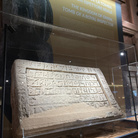 Dal 04 febbraio 2025 al 23 aprile 2025
Roma | Parco archeologico del Colosseo - Curia Iulia
Dal 04 febbraio 2025 al 23 aprile 2025
Roma | Parco archeologico del Colosseo - Curia Iulia
-
 Dal 05 febbraio 2025 al 07 settembre 2025
Bologna | MAMbo - Museo di Arte Moderna di Bologna
Dal 05 febbraio 2025 al 07 settembre 2025
Bologna | MAMbo - Museo di Arte Moderna di Bologna
-
 Dal 06 febbraio 2025 al 09 febbraio 2025
Bologna | Palazzo Isolani
Dal 06 febbraio 2025 al 09 febbraio 2025
Bologna | Palazzo Isolani
-
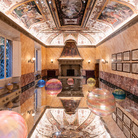 Dal 04 febbraio 2025 al 30 aprile 2025
Bologna | Palazzo Boncompagni
Dal 04 febbraio 2025 al 30 aprile 2025
Bologna | Palazzo Boncompagni
-
 Dal 31 gennaio 2025 al 10 marzo 2025
Mantova | Palazzo Ducale di Mantova
Dal 31 gennaio 2025 al 10 marzo 2025
Mantova | Palazzo Ducale di Mantova
-
 Dal 30 gennaio 2025 al 08 settembre 2025
Milano | Osservatorio Prada
Dal 30 gennaio 2025 al 08 settembre 2025
Milano | Osservatorio Prada
